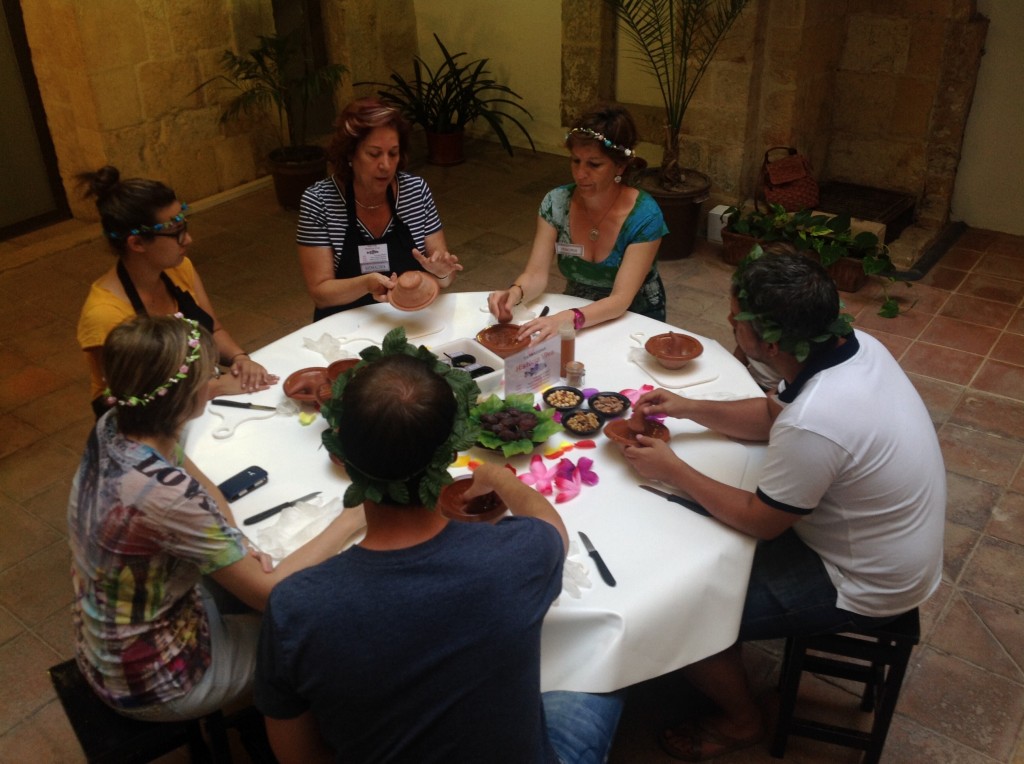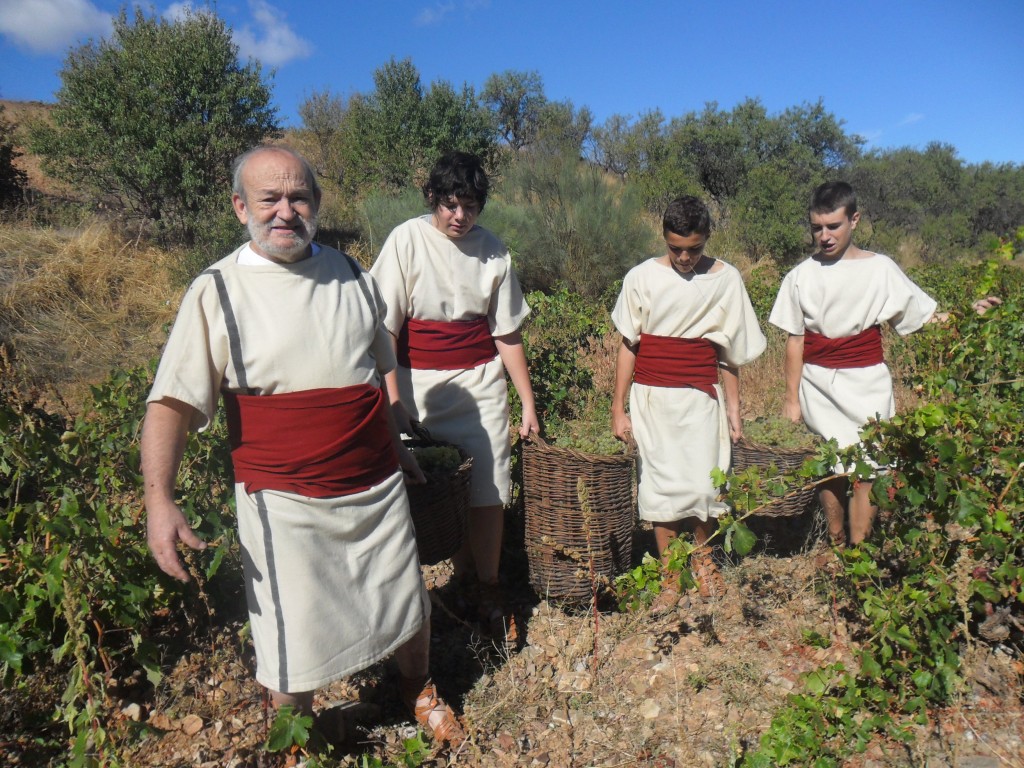Salt seasoned with herbs was one of the ingredients used in the Roman cuisine. It was used as flavour enhancer, but also as a key ingredient regarding the preservation of certain food. We get a journey along Roman cuisine, which was usually very simple, every Monday, until September 1 at the courtyard of the Old Tarragona’s Town Hall, by means of an activity called ‘A la cuina d’Apici’ (At Apicius’ kitchen), a culinary workshop designed by the guys of Domus Apicius, a group of historic recreation from Tarragona, named after the Roman gourmet Apicius, contemporary of Caesar Augustus and Tiberius.
The discovering of the Roman gastronomy has provided us with the opportunity of reaffirming the values of a type of cuisine built onto three basic elements: wheat, oil and wine, as explained by Magí Seritjol, Tàrraco Viva and Tarragona, Història Viva director. The ingredients of the so-called Mediterranean triad are also, these days, one of the main pillars of our gastronomy, despite the fact that others have been added since, such as tomatoes, potatoes, chocolate, peppers or even exotic fruit, resulting of direct influences from other cultures and continents.
However, if we go back in time, over two thousand years ago, we find that Romans had established a way of guaranteeing the production of the triad. This is why every Roman village had to produce wheat, besides oil and wine, which was then used partly as a supply for their inhabitants, with excesses being commercialized. In the Roman Empire, the region of Tarraconensis exceled in wine production, as related by Roman scientist and naturalist Pliny the Elder. Thus, boats loaded with amphorae sailed off from Tàrraco’s Port, carrying the wine that was produced in this area.
URV’s lecturer Albert Mas reports this while warning us: “These days, we would not like Roman wins at all! Why? Firstly, because Roman wines hadn’t been fermented, and this would cause wine to get damaged very soon, and also because we have learnt better ways of modifying and improving wines in the present time”. Mas says that Romans would resort to professionals, in charge of spicing or even sweetening, using honey, all those wines served in taverns. Thus, their flavour would become much more appealing.
Once this is settled, Albert Mas, who teaches at Tarragona’s School of Oenology, tells us about the close relationship existing between wine and Roman society since, beyond bacchanals and the mere pleasure, wine was consumed daily, and from early age, mixed with water, to ensure bacteria in water were erased.
Benito Báguena is also a Roman wine expert, and reminds us that wines made at Tarraconensis were very similar to those made in Rome, which is why they became very prestigious in the Roman Empire, despite pointing out that “they were good for the taste of that time“.
Báguena does also produce wines following the standards set by Roman agronomists, such as Columella, Paladio, Varron or Plini, although he reveals that these are wines “we use during our lectures about Roman wine“. If you want to try them, Báguena is a team member of Tàrraco Viva Festival; so don’t miss next year’s programme.
‘A LA CUINA D’APICI’ ACTIVITY
Location: Old Town Hall (carrer Major, 39)
Days: August 4, 11, 18 and 25 / September 1
Time: 7pm
Price: 7€
Languages: Catalan, Spanish, English and French
Text: Gemma Casale (@casalesi on Twitter)
Translation: Artur Santos (@artur_1983 on Twitter)





